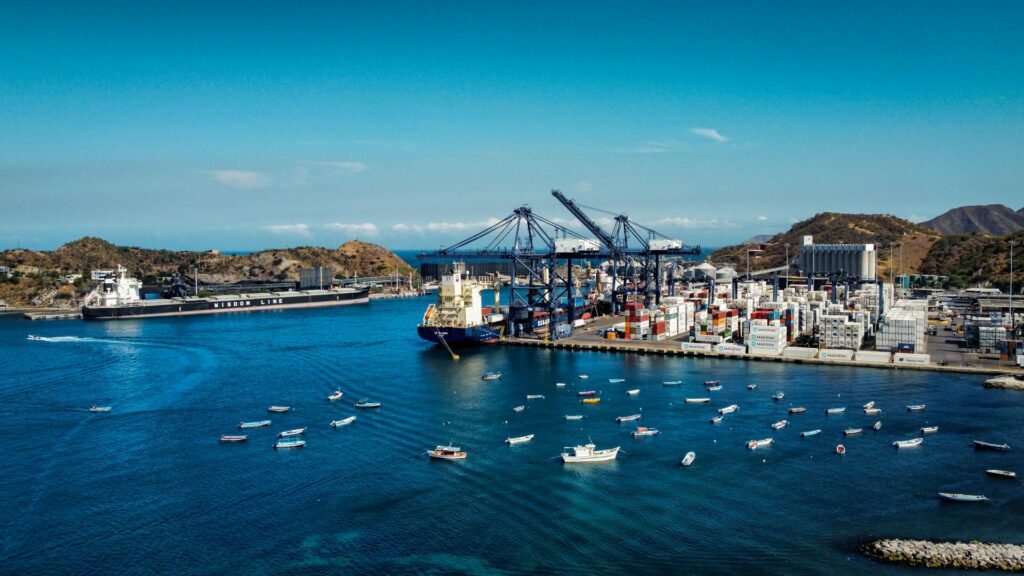
In the current context of the continuous development of international trade, the demand for freight transportation between China and Canada, especially through the common mode of LCL (Less than Container Load) shipping with CIF (Cost, Insurance and Freight) arrangements, is growing increasingly. Many merchants favor this mode of transportation. Today, I’d like to introduce in detail the key points related to LCL shipping to Canada CIF from china.
I. Domestic Warehouse Receiving Services in China Facilitating LCL Shipping to Canada CIF
To make it convenient for customers to dispatch goods, numerous logistics enterprises have set up warehouse receiving services in multiple locations across China, which is of vital importance for the operation of LCL shipping business to Canada CIF. No matter where you are in Guangdong, Fujian, Anhui, Shanghai, Guangxi, Tianjin, Nanjing, Beijing, Shandong, Qingdao, Guizhou, Sichuan, Xi’an, Chongqing, Yunnan, Chengdu, Wuhan, Wenzhou, Zhejiang, Hebei, Henan, Jiangchi, Shaanxi or Shanxi, you can easily transport your goods to the designated warehouses, getting ready for the subsequent LCL shipping process to Canada CIF.
Customers can either purchase commodities in physical stores or shop online, and then have the goods delivered to the corresponding warehouses via domestic logistics, kicking off the initial stage of LCL shipping to Canada CIF. This significantly saves the time and eff ort of dispatching goods, ensuring a smooth start for LCL shipping to Canada CIF and enabling the goods to enter the subsequent transportation steps in an orderly manner and finally reach Canada.
II. Departure Ports and Destination Ports Supporting
Departure Ports Ensuring the Departure
LCL shipping to Canada CIF can depart from multiple coastal ports in China, such as Guangzhou Nansha Port, Shenzhen Shekou Port, Yantian Port, Qingdao Port, Tianjin Port, Shanghai Port, and Ningbo Port. These ports are well-equipped with numerous shipping routes and possess highly efficient cargo handling capabilities, capable of ensuring that the goods for LCL shipping to Canada CIF are loaded onto ships in a timed and smooth manner, embarking on the journey to Canada. They are the crucial starting nodes in the LCL shipping chain to Canada CIF.
Destination Ports Receiving the Arrival
LCL shipping to Canada CIF can reach major ports in Canada, including Vancouver Port, Toronto Port, Montreal Port, and Calgary Port. Vancouver Port, the largest port in Canada, is located on the west coast of Canada and serves as the main entry point for Asian goods, especially those arriving via LCL shipping to Canada CIF. Montreal Port, situated on the St. Lawrence River, is an important gateway for Canada’s trade with Europe and Asia, particularly in the context of LCL shipping to Canada CIF. Halifax Port, on the East Coast of Canada, plays a significant role in facilitating imports through LCL shipping to Canada CIF.
III. Detailed Breakdown of Costs
Departure Port Costs Laying the Foundation
These include customs declaration fees, documentation fees, and terminal handling charges. The customs declaration fee is incurred when declaring the export of goods for LCL shipping to Canada CIF to the Chinese customs. The documentation fee is mainly used to process various documents during the LCL shipping process to Canada CIF. The terminal handling charges cover the loading, unloading, and handling operations of the goods for LCL shipping to Canada CIF at the terminal. These fees may vary depending on different ports and the specific circumstances of the LCL shipping to Canada CIF, constituting the initial cost component of LCL shipping to Canada CIF.
Ocean Freight Dominating the Cost Trend
Ocean freight is the major part of the cost for LCL shipping to Canada CIF. Its price is affected by multiple factors, such as the volume, weight, shipping season, and pricing strategies of shipping companies. Generally, the larger the volume of the goods, the relatively higher the ocean freight, which is crucial for cost accounting in LCL shipping to Canada CIF. Moreover, different shipping companies offer different ocean freight quotations. Customers need to seelect LCL shipping to Canada CIF to make the optimal choice based on their own requirements.
Destination Port Costs Completing the Chain
At the destination ports in Canada, certain costs will be incurred, such as customs clearance fees, port miscellaneous fees, and storage fees. These are necessary expenses after the goods for LCL shipping to Canada CIF arrive in Canada. The customs clearance fee is required for the goods to go through customs clearance procedures at the Canadian customs. The port miscellaneous fees include a series of related fees at the destination port terminal. If the goods need temporary storage at the destination port, storage fees will also be incurred. Together, they form the cost part of LCL shipping to Canada CIF after arriving in Canada.
Insurance Premium Safeguarding the Entire Journey
The insurance premium included in the CIF arrangements is the cost paid to insure the goods against risks during the LCL shipping process to Canada CIF. The insurance premium is usually calculated based on factors such as the value of the goods, the shipping route, and the Shipping mode, ensuring that in case of accidental loss or damage to the goods for LCL shipping to Canada CIF, the consignor can obtain corresponding compensation, safeguarding the entire LCL shipping process to Canada CIF.
IV. Precautions to Keep in Mind
Proper Packaging Ensuring the Safety
The packaging of goods must be firm and meet the requirements of ocean shipping. For special goods such as fragile items and liquid commodities in LCL shipping to Canada CIF, special packaging measures and protective means should be adopted to avoid damage or leakage during the transportation process, ensuring that the goods for LCL shipping to Canada CIF can arrive at the destination in good condition.
Complete Documentation Promoting the Customs Clearance
Complete and accurate documents, such as commercial invoices, packing lists, and bills of lading, are required. These documents are important bases for customs declaration and clearance in LCL shipping to Canda CIF. Any error or omission of information may lead to delays or unsuccessful customs clearance of the goods, hindering the LCL shipping process to Canada CIF.
Understanding Canadian Import Regulations Guiding the Direction
Different commodities may have different import requirements and restrictions in Canada, including tariff rates, license requirements, and label regulations. This is of great importance for LCL shipping to Canada CIF. Before dispatching the goods, it is necessary to fully understand the relevant regulations to avoid unnecessary troubles and losses, and ensure a smooth LCL shipping process to Canada CIF.
Proper Transportation Time Planning Coordinating the Rhythm
Ocean shipping generally takes a relatively long time. It usually takes 2 to 6 weeks from China to Canada, depending on factors such as the departure port, destination port, weather, and ocean conditions. Therefore, when arranging the transportation of goods for LCL shipping to Canada CIF, it is necessary to plan the time in advance to avoid delays in transportation affecting business operations and ensure that the LCL shipping process to Canada CIF matches the overall business rhythm.
V. Volume Limitations for Goods Regulating the The operation
LCL shipping to Canada CIF is generally limited to within 15 CBM (cubic meters). If the goods exceed this volume, it is necessary to confirm with the logistics enterprise separately. Because oversized goods may have an impact on the transportation arrangements, berth bookings, and cost calculations of LCL shipping to Canada CIF. The logistics enterprise needs to formulate appropriate transportation plans based on the specific situation to ensure the efficiency and standardization of LCL shipping to Canada CIF.
LCL shipping to Canada CIF plays an important role in international trade. By understanding its various service contents, cost components, precautions, and volume limitations, customers can complete the freight transportation more smoothly and efficiently, promoting the continuous development of bilateral trade.





